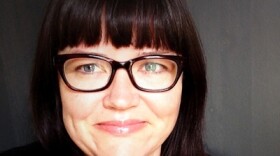
It's hard to get your head around climate change. And it's not just you - our brains simply aren't wired to think about problems at that scale. And why would they be? Understandably, this can lead to all kinds of mental outcomes that don't actually solve the problem. In fact, it's counterproductive.
Dr. Sarah Jaquette Ray is an author and professor of Environmental Studies at Cal Poly Humboldt. On Climate Magic, she connects the dots between how you feel about the climate and your agency to do something about it. She explores the big and small questions about your relationship with the climate: what happens to your own mental health when you're proactive about climate solutions? What do we know about PTSD for wildfire survivors? How do culture and your brain conspire to make you want to stick your head in the sand? What exactly is climate anxiety, and how can someone get past it? What's Gen Z got to say about it all?
She'll also highlight the everyday citizens who are rolling up their sleeves, despite--and because of -- their debilitating despair. Climate Magic is about the emotional life of climate politics. You want to thrive in the Anthropocene, and the planet needs you to tap the root of your inner skills to build a better world. It's not rocket science... it's Climate Magic.
Subscribe at Apple Podcasts
Subscribe at Spotify
More from Sarah Jaquette Ray:
linkedin.com/company/climatemagicpodcast
A Field Guide to Climate Anxiety: How to Keep Your Cool on a Warming Planet
NPR's Hidden Brain: When it's All Too Much
KCRW: Helping Students Cope with Stress Around Climate Change
Harvard Political Review: On Climate Emotion
Climate Change and Happiness: Coping with Climate Anxiety on Campus with Sarah Jaquette Ray
In This Climate: Existential Loneliness, the Climate Crisis, and Intrinsic Hope
KCET: "Overwhelmed by Climate Change? Try Reframing Your Impact
-
How do you talk to your kids about climate change?
-
Groundbreaking climate therapist Leslie Davenport discusses regulating our nervous systems for climate justice.
-
"Paying attention to existence is important when we’re living in a time of climate change because it helps the present moment to not be stolen away from us," says Rabbi Ora Nitkin-Kaner.
-
Why do our brains not like to think about climate change?
-
Can listening better solve the polycrisis? What advice does a communication expert have for saving democracy, social trust, and the planet?
-
How does your identity shape your environmental values and feelings about climate change?
-
The spirit of this show is to help the 89% of us humans on the planet who care about the climate crisis, but don’t quite know what to do about it.
-
What does the next generation need from us today?
-
Master SCUBA diver Kory Lamberts is changing the world within his reach.
-
Neurosurgeon Ann-Christine Duhaime, author of Minding the Climate, explores how our tendency to prioritize short-term consumer pleasures spurs climate change, but also how the brain’s amazing capacity for flexibility can—and likely will—enable us to prioritize the long-term survival of humanity.











